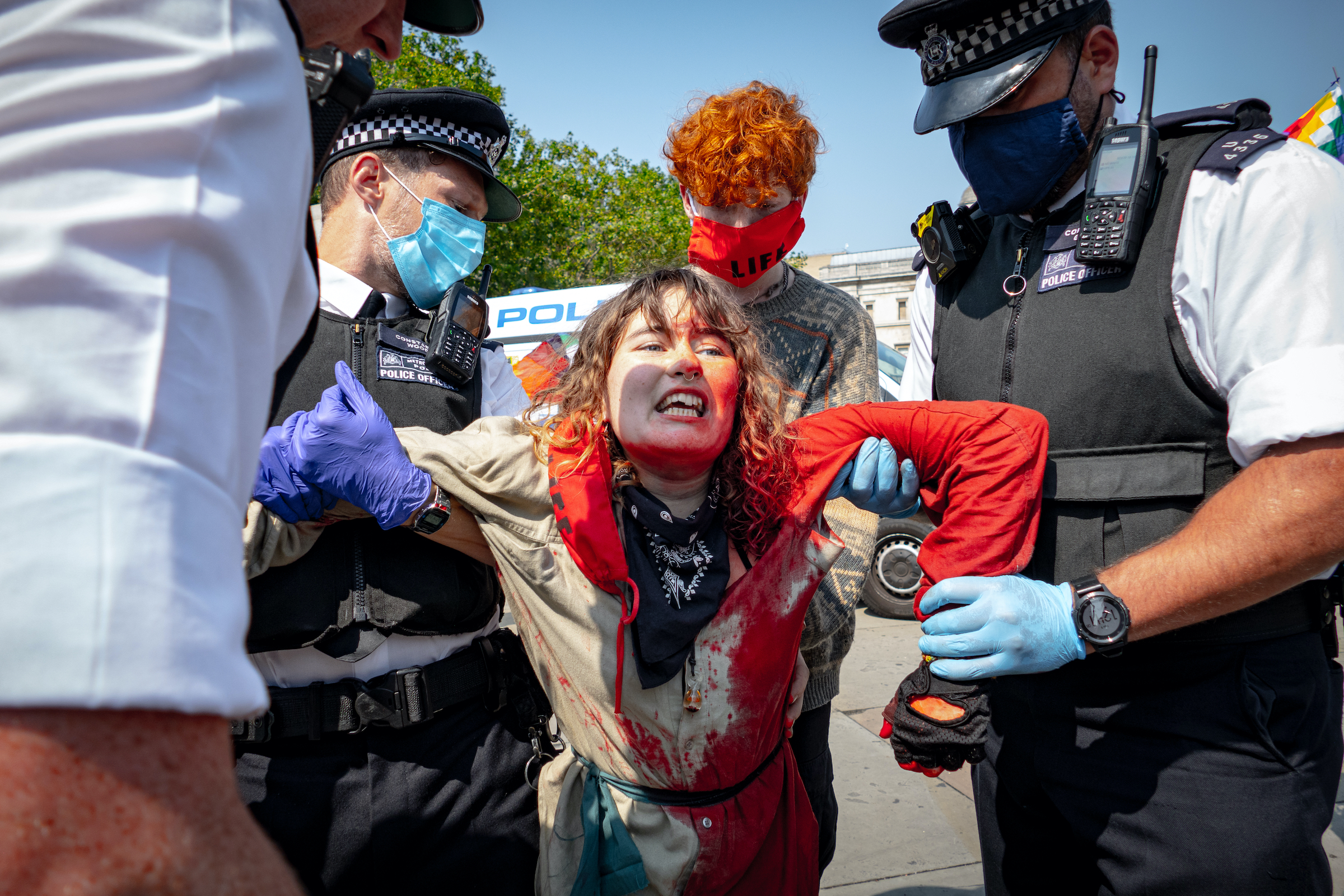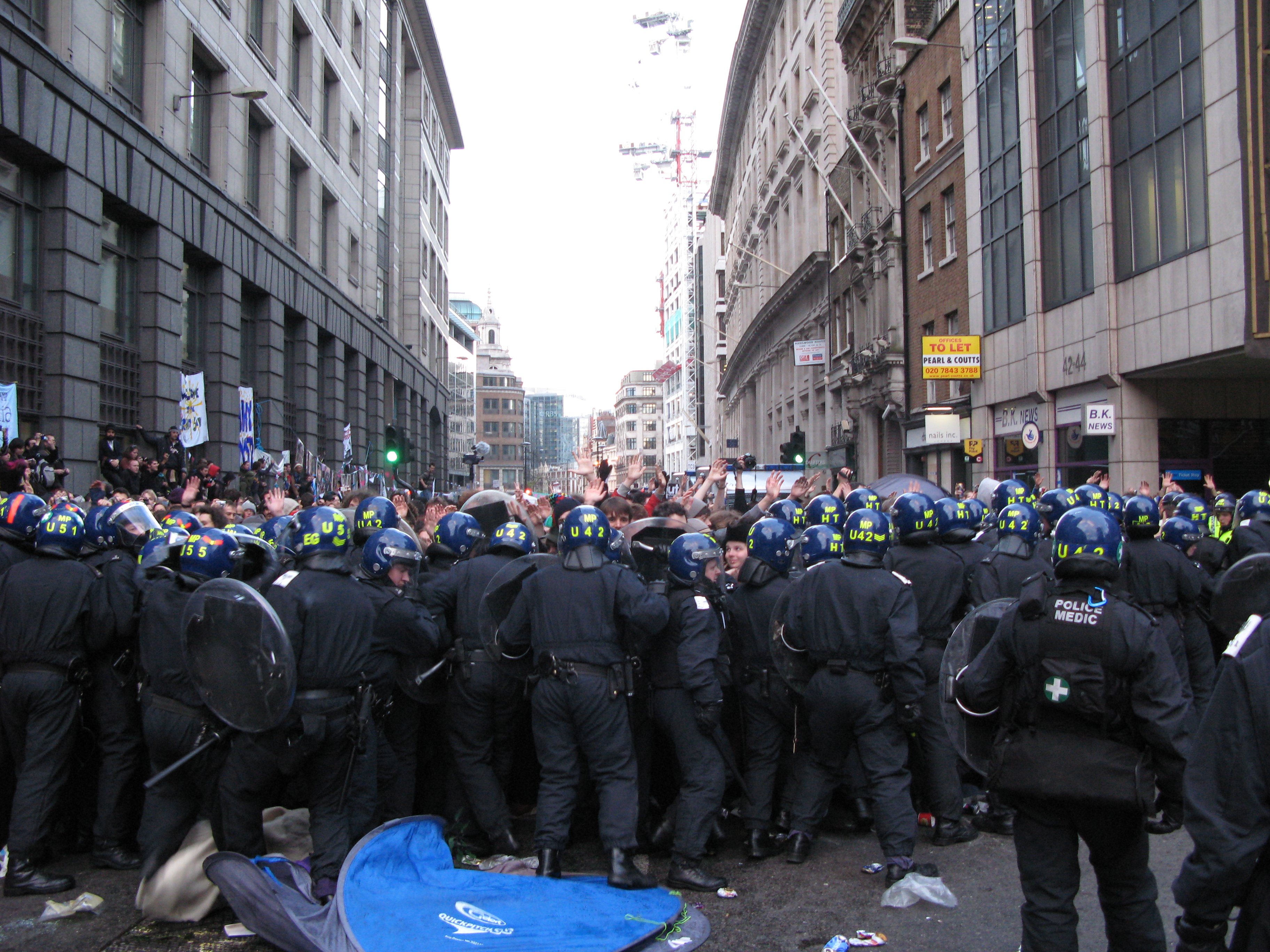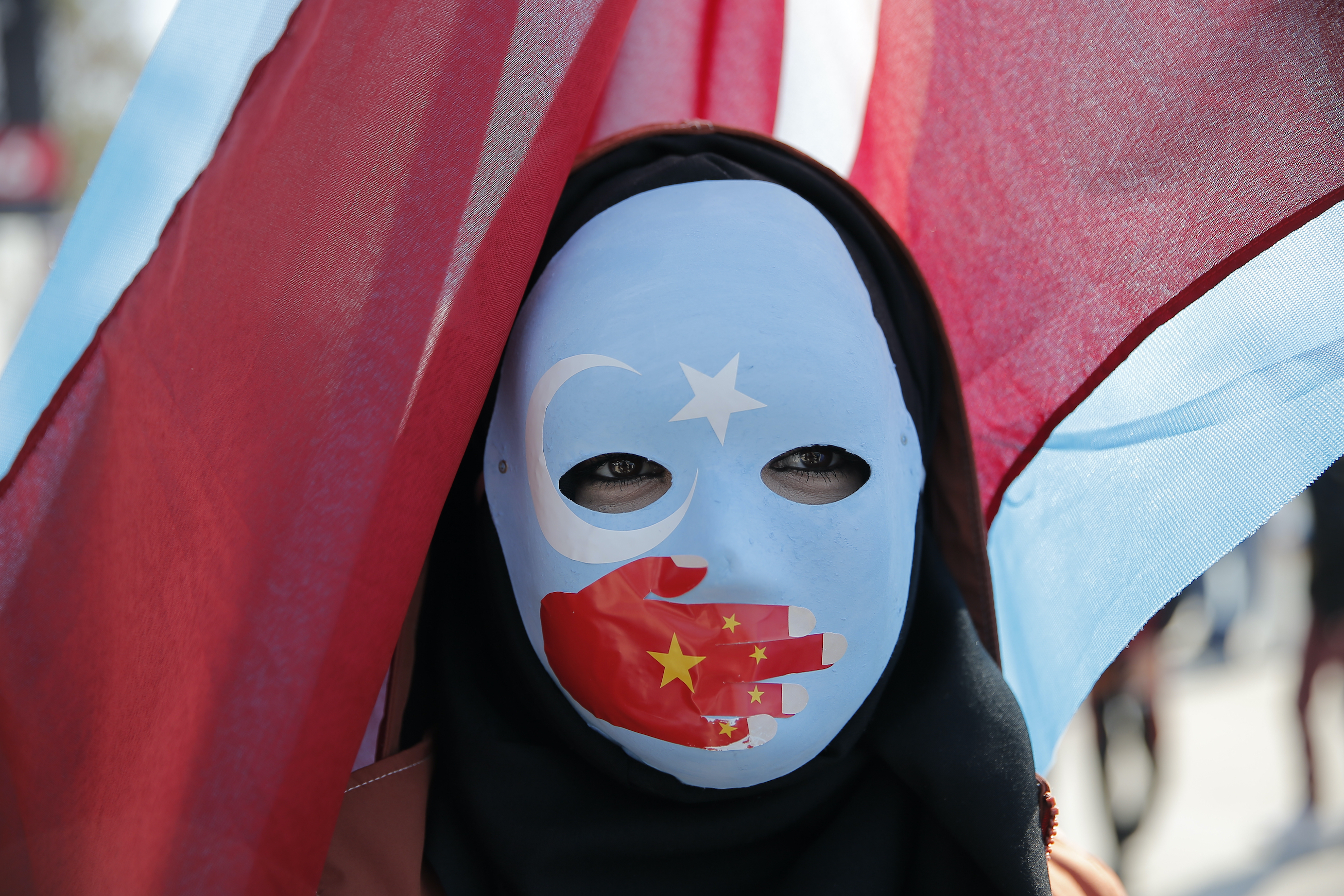Protest is for the courageous because it's running against the grain of today in the search for a better tomorrow. These protesters are fine people who often pay a heavy price.
How protest movements change the world
Professor of Human Rights Law
- Protest movements aim to draw people’s attention to obvious, commonsense truths such as the disparities in wealth and power in modern society.
- All protest movements face the challenge of inconveniencing people enough to get noticed, but not so much that it overshadows the message they are trying to get across.
- Germany’s Green Party is a good example of something that began as a protest movement but evolved into a mainstream body on the verge of achieving real political power.
No dissent, no democracy
Protest is fundamental to our future. We are what we are today – a broad, democratic culture – because of past protesters.
Protest is vital, both in democracies and authoritarian states. In both environments, protesters shed light on what we should become. They’re often in advance of our understanding of what is sensible and what is good.
It’s an amazing thing that people go to the trouble of fighting to change our common sense. Take, for example, Occupy, that extraordinary organisation that tried to get people to see the importance of the injustices all around them. By occupying spaces to make a point about disparities of wealth and power, the Occupy movement drew people's attention to what was obvious when you thought about it: the depths of injustice in our society. It set up tents around St. Paul's Cathedral in London. It produced its own newspapers and provided university teaching. It wasn't just about sitting around waiting to be evicted by the police. Occupy was trying to change people's minds and at least get people to see things differently.
It’s the same with what has become known as Extinction Rebellion. ‘Don't you see?’ they say. ‘We are transforming the world we know. How can we bring this to your attention?’ Unlike the terrorists, Extinction Rebellion and Occupy don’t say, ‘We’ll kill you, so you notice us.’ Instead, it’s ‘We’ll inconvenience you so that you’ll understand we can have a better world.’ That seems to me to be an extraordinarily powerful insight.

Photo by Vincenzo Lullo.
The Stansted 15
One person I met at an Occupy event was subsequently one of the Stansted 15, as they became known. This group wanted to protest the removal without due process of asylum seekers from the United Kingdom to countries where they faced prosecution, persecution or death. The British authorities were doing this in unacknowledged night flights. In 2017, the Stansted 15 surrounded one of these flights and immobilised it so that asylum seekers could not be deported.
These protesters were prosecuted for terrorism-related offences and faced long periods in jail. They were initially convicted and needed to go to the Court of Appeal to secure a quashing of these convictions. It takes huge courage to do this, but there are people in Britain today who are alive and thriving and whose asylum applications have now been accepted because of the action taken by these protesters.
Dilemmas facing protesters
If I protest quietly and cause inconvenience to no one, my protest is perfectly permitted – and completely ignored. If I go where the crowds are, I'll be moved on. If I'm finding myself unnoticed and take disruptive action to draw attention to myself, I run the risk of being arrested and charged with trespass (there are lots of laws that can be used). Finally, if I go the whole hog and engage in political violence, I’ll be noticed for sure. But then I'm arrested and jailed.
What's the difference between ordinary protest and violent protest? For me, it's clear that protest which does not hurt people is more moral and more ethical than protest that does. I find it very hard to work out the circumstances, especially in a democratic system, where killing people to achieve a greater good is warranted. However, for protest to be successful, it must grab people's attention. It must annoy, irritate and aggravate. And the risk is that people, having been irritated and aggravated, will not listen to the message. They will recoil in horror or disgust at how it was brought to their attention.
A fragile legal framework
The devil inevitably is in the detail regarding the protections afforded to protesters by human rights legislation.
Human rights law in the United Kingdom is not great on protest. People showed up in a shopping mall. They handed out leaflets. They were told to get out. The European Court of Human Rights, to whom the case went, said that the protesters should have gone to the high street. Private malls are policed by security guards who can decide who comes in and who goes out. And you're not shopping.
But who's in the high street? Nobody. It's a wasteland of clothes shops. That wasn't a very powerful statement by the European Court of Human Rights.

Riot police officers "kettle" protesters at the Bishopsgate Climate Camp, London, 1 April 2009. Wikimedia Commons. Public Domain.
Another example is kettling. The police had invented a new and effective mechanism for the control of protests called kettling. Essentially, it's a punishment for going to a protest. You're maintained in a space by the police, unable to leave for hours on end. Not only was that practice upheld by the English courts, it was upheld by the European courts too. The Occupy movement could not use the right to protest to protect itself from the City of London's determination to retake the land. Regrettably, the right to protest is very fragile in law.
An authoritarian’s worst nightmare
In authoritarian societies, we see at the moment an extraordinary sensitivity to protest in many shapes and forms. Look no further than the president of Russia's extreme reaction to the risk of crowd protests on the arrival back in the country of Alexei Navalny, a well-known dissident. He did not want crowds gathering as they had gathered towards the end of the Soviet era and as they had gathered in Belarus when the election was stolen again by its president. He cared about protest so much that he made it impossible.

Photo by Huseyin Aldemir.
Or look at China. A set of barristers’ chambers issued a brief or opinion about the likelihood of the Chinese engaging in crimes against humanity in the Uighur region. And the Chinese retaliated by putting this set of chambers on a blacklist, making it impossible for anyone to do business with the Chinese and with these chambers. They've had to close an office in Singapore. City firms have run from them. The Chinese care about protest even when it comes in the form of criticism on social media. So these countries care deeply.
Destabilising the status quo
In democracies, we have a paradox, namely that political leaders are by definition winners in an electoral game. They have knocked on doors. They have secured votes. They think that they have a right to engage in policymaking because the people have put them in that position. They resent people who have not won an election and who show up in a raggedy kind of way, thinking they are entitled to achieve change better than those who have put in the hard grind of electioneering.
I have some sympathy with that point of view because how do you determine levels of accountability for protesters? Can anybody be a protester? In fact, I don’t like protest when it’s “Make Britain Great” or “White Lives Matter”. I don't like protest of which I disapprove. I rather like protest of which I approve. So I'm as vulnerable as the next guy to the accusation that I'm very selective in what I support and what I don't.
Policymakers are worried about protest because it destabilises the status quo. But sometimes, that’s exactly what is needed. Toppling a statue in Bristol may have been a breach of law, but it got people talking about something which nobody had noticed particularly, but which is unbelievable when you think about it: the way our country is constructed based on an imperial past. That single act of destruction, toppling a statue of a slave owner into the sea, achieved a change in the way we discuss such issues.
Grown-up policymaking
One of the real challenges going forward is how you harness the energy of a popular movement into something that lasts beyond the passions of the moment. You need to respect both the initial revolt’s chaos and those who would seek to turn it into something bigger, more durable and more likely to get results. That is really hard, but it can be done.
We have an example of how this can happen. It could be that the Greens will soon govern the German state. The Greens began as an outsider community fighting on an agenda incomprehensible to most Germans. But they've turned themselves into something which has not compromised on the energy of the start but which has engaged in (and I don't mean this in a derisory way) grown-up policymaking. What does “grown-up” mean in this context? It means you channelled the energy into what is achievable and not only what is right. And that, it seems to me, is the future.
Discover more about
protest and human rights
Gearty, C. (2016). On Fantasy Island: Britain, Europe, and Human Rights. Oxford University Press.
Gearty, C. (2006). Can Human Rights Survive? (The Hamlyn Lectures). Cambridge University Press.
Gearty, C. (2013). Liberty and Security. Polity.